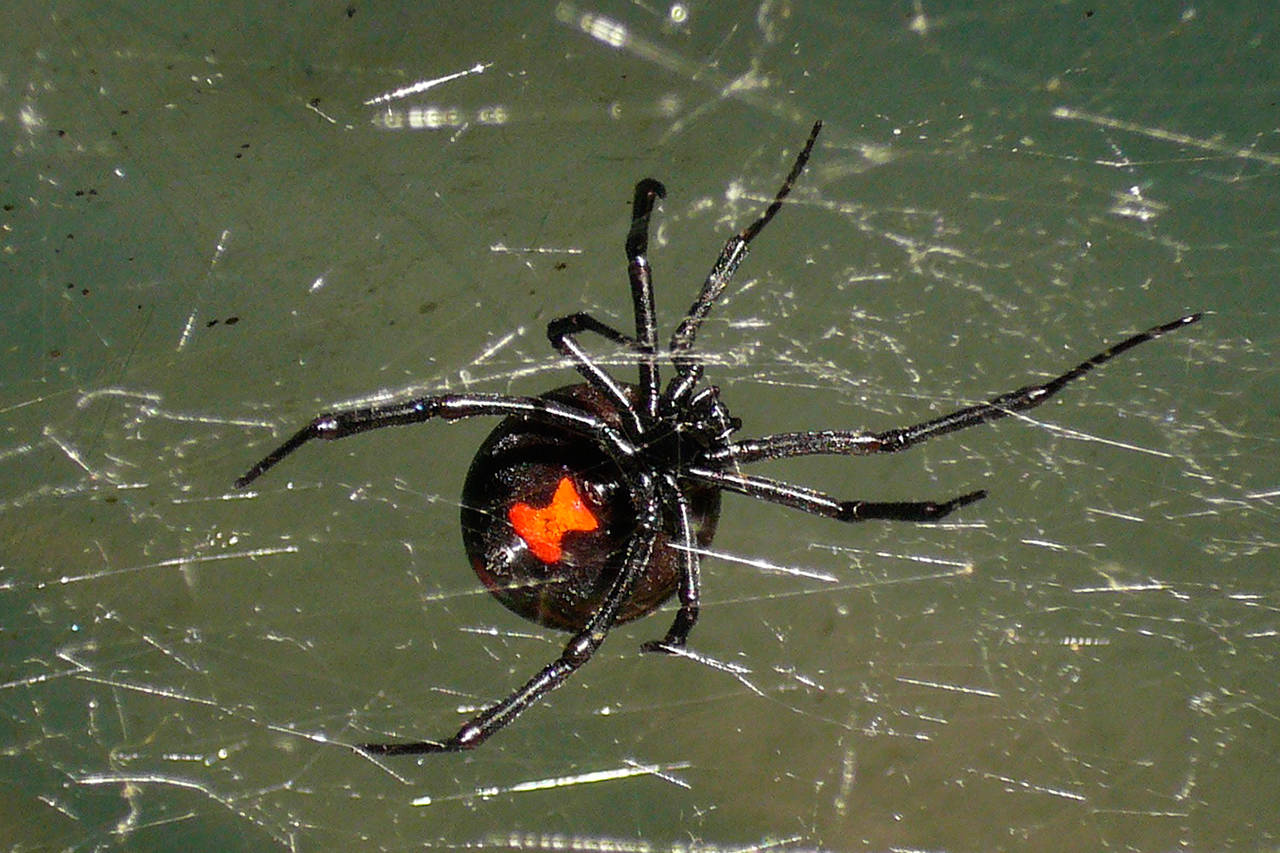by Terese Smith-Prescott
San Juan Island
My husband and I were surprised last spring when a child visiting us overturned a rock on our newly purchased property and found what looked like a black widow. Not really knowing what to do and having young children, we squished it. The spider was black, shiny and had a big abdomen.
A few months later, another was spotted. And another. And then a few more. We could see small red and orange markings on their abdomens. We decided to capture some in the hope of identifying them. We put four in glass jars and took them to Kristina Bayas at the WSU extension branch. The spiders were frozen and shipped to Rod Crawford at the Burke Museum in Seattle. After a month of suspense, Crawford confirmed the specimens were indeed black widows. He sent me the following.
“Now that you know you have black widows, you might be tempted to panic. Don’t! Although a bite from a black widow is not as harmless as most spider bites, it is just as unlikely to occur! Consider that I myself have handled literally tens of thousands of live spiders with my bare hands over the years, resulting in only three actual bites. I would say that as long as the kids are made aware to steer clear of the very distinctive, strong-silk ground-level webs of the black widows, they will be acceptably safe. … Should the extremely unlikely occur and someone is actually bitten, just get them to a health care facility and they’ll be fine in a few days.”
Our first thoughts were to sell the property or move off the island, but realistically we just have to learn to live with them. We are taking proper precautions like wearing gloves when picking up or working on our property, and we are teaching our children and their friends not to overturn rocks, and to stay away from ground webs, wood and rock piles.
According to Kate Yturri, a local Master Gardener who has attended advanced Master Gardener entomology training, spiders eat 880 million insects on average annually. Most of the 9 million species of living creatures on the earth are insects and they are very important for our existence, but spiders naturally help keep them under control.
Spiders are not aggressive and do not usually bite people. This isn’t just because they are more likely to run from us than attack us, but because it is difficult for them to bite us. They are equipped to bite and eat insects, not us. Their “fangs are too weak and too small to break human skin easily, and their “fangs” are located under their head.
Editor’s note: The Sounder reached out to Russel Barsh of KWIAHT, who wrote: “The Western Black Widow (Latrodectus hesperus) is present in the islands, albeit uncommon, and it is actually a relatively shy spider, not very aggressive – ordinarily you would need to pick one up roughly to get bitten. We haven’t seen reliable evidence of anyone bitten by a Western Black Widow here. Spider bites as a whole are pretty rare.”



